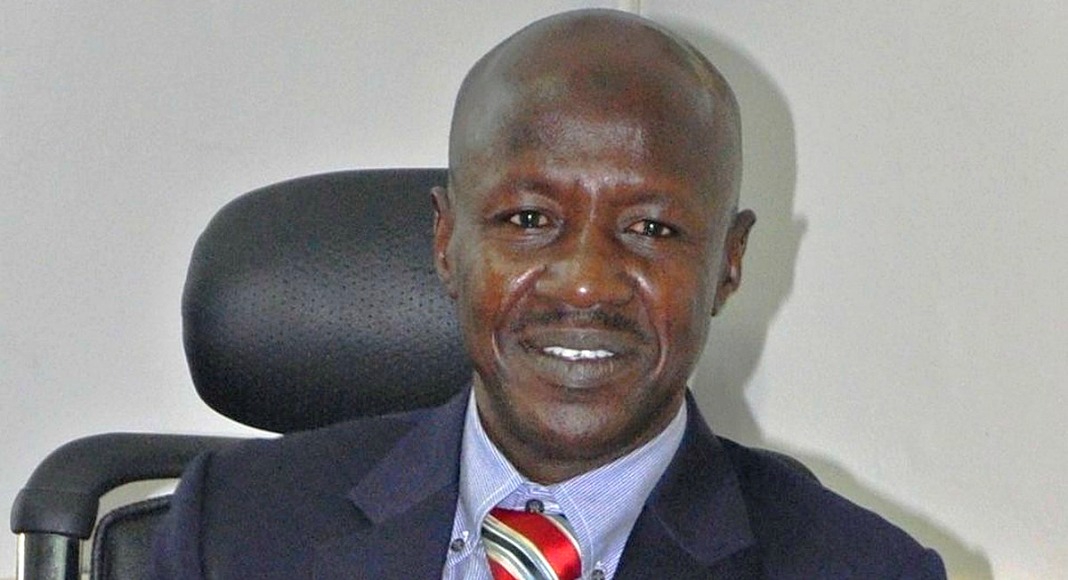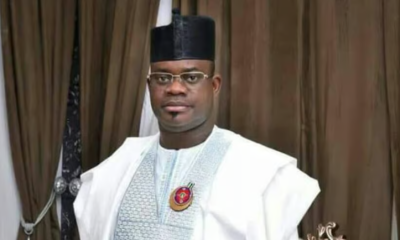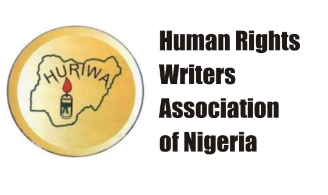Comments and Issues
Rule of Law, blind men, the Elephant
Published
10 years agoon
By
Olu Emmanuel
By CELESTINE OKONKWO
SUDDENLY, obedience to court order has become the only yardstick for measuring adherence to rule of law and sustenance of democracy. According to such definition, a governor or president or any person can go against the constitution by stealing, extortion, embezzling public funds, and not even paying workers’ salaries; but once he obeys court orders, especially, granting of bail to anyone accused of such misdemeanor, he is in the right books of the pro-rule of law exponents.
Therefore, the Economic and Financial Crimes Commission (EFCC) was deemed to be complying with the rule of law when it complied with the bail orders for the former Speaker of the House of Representatives, Dimeji Bankole, and House member, Faruk Lawan, who were standing trial for impropriety and bribery; as well Chimaroke Nnamani and Joshua Dariye, former governors of Enugu and Plateau states, respectively, who were in court for embezzlement of state funds. Rule of law advocates looked the other way since the judgments were obeyed by allowing the suspects to go on bail even if that meant an apparent end to the cases.
Again, the refusal of the bail order for Colonel Sambo Dasuki for allegedly diverting funds meant for arms purchase has given birth to an avalanche of rule-of-law defenders. They have inundated the nation’s media with comments, articles, arguments, and calls for the crucifixion of the present government for being dictatorial and for derailing the country’s hard-won democracy because it failed to allow Dasuki go on bail.
“Yes, we want to fight corruption but not with the corruption of the very sacred democratic and constitutional values without which this government or any other one can come to being,” Onome Osifor-Whiskey of TELL magazine, wrote in one of the articles condemning the government for not allowing Dasuki to go on bail.
Nosa Ighiebor also of TELL magazine, wrote in one of his numerous articles that, “Just like the president, those who support him in his fight against corruption the way he is going about it are impatient with those who insist that the fight should not be an excuse for undermining the rule of law, which is fundamental to the democratic system.”
Governor Ayodele Fayose of Ekiti State, also a defender of the rule of law, is of the opinion that the EFCC cannot even investigate military Generals accused of diverting funds meant for the purchase of arms to fight the Boko Haram because, according to him, the highest-ranking EFCC personnel is the acting chairman of the commission who is an assistant commissioner of police.
“If he would be participating in the interrogation of the generals, that will be the first time senior military officers will be subjected to intense grilling over an allegation by a team of interrogators outside military officers and led by an assistant commissioner of police and his team of police interrogators,” he argued.
The National Daily, in one of its editorials, also carpeted the current administration’s method of fighting corruption. Again, its grouse has to do with the issue of refusing bail order by the EFCC. “Take the issue of Colonel Dasuki, for example, the ex-NSA has consistently been arrested, arraigned, and granted bail only to be re-arrested by the EFCC. Both President Muhammadu Buhari and the EFCC chairman have indicated that there is no let off for Dasuki and that the pattern would continue ad infinitum, perhaps, until conviction against the ex-security adviser is obtained,” the paper had said.
Perhaps, more pronounced is the trial of the PDP spokesman, Olisa Metuh, which was preceded by a media trial. The EFCC obviously, acting out a script from Aso Rock, denied Metuh bail by frivolously splitting the charges in a desperate move to keep him out of circulation, ostensibly because the authorities consider his recent statements as being too harsh and overtly critical,” the editorial said.
Bola Bolanle, another rule of law activist, in an article in The News magazine, thinks that the government, in refusing to grant bail to those who are standing trial for allegedly looting the national treasury, is acting outside the law. He says that Buhari got it all wrong to think that he has the right to bend the laws to achieve his purpose.
“Government, in the exercise of its duties, may not abridge, tamper or interfere with the rights and privileges of a citizen as preserved by law. The government has no choice in this matter. It is bound by law to respect the legally-prescribed rights of the citizen,” he posited.
“Where a citizen falls foul of the law and the government moves to hold him accountable, the government, in doing so, must itself act strictly under the law; otherwise, we have a case of one criminal trying to subject another criminal to the law. It is trite that you cannot give what you do not have and he who comes to equity must come with clean hands,” he further argues.
ALSO SEE: EFCC in a fix over Tompolo
“In fighting corruption, which is laudable and which this writer supports, the government must do so under the law. A lawless government is a danger to the entire society the lawless and lawful equally. Therefore, it is wrong to presume that government, just because it is fighting corruption, will ride roughshod over the rights and liberties of citizens,” Bolawole contended.
Again, Nosa Igiebor wrote. “His (Buhari’s) war is beyond any reproach, period! It becomes more frightening when even lawyers, including senior advocates, endorse the flagrant undermining of the judiciary by executive agencies disdainfully ignoring court orders under the guise of fighting corruption.”
Igiebor accuses Buhari of being impatient with the slow methodical grind of due process in his fight against corruption and that his template for dealing with suspects leaves no room for innocence to be proven even in the courts as he has complained that the judiciary is not on the same page with him on the graft war. “So, what is the big fuss about the government also breaking the law by ignoring due process and defying court orders?”
Luckily, for the EFCC and the administration, an Abuja Federal Capital Territory High Court judge, Justice Peter Affen, has ruled that the continued detention of Dasuki did not violate the order granting the ex-NSA bail on December 21, 2015. Justice Affen dismissed the application by Dasuki seeking to stop his trial for alleged diversion of N19 billion arms funds on the grounds that his re-arrest on December 29, 2015 violated the order of the court.
Earlier, Justice Baba Yusuf of the same court had on February 8, made a similar declaration that the detention of Dasuki was not a breach of his order granting him bail on December 18 2015. Justice Affen ruled that Dasuki’s application lacked merit and ordered that the trial should commence.
He ruled that since it was clear that the former security adviser was not re-arrested by the EFCC but the DSS, the EFCC cannot be said to have violated the order granting him bail. He ruled that though the DSS and the EFCC were both federal agencies, the action or inaction of one could not be blamed on the other. He also ruled that the order granting bail to Dasuki did not preclude him from being re-arrested by other agencies of the federal government in respect of other alleged crimes.
Whilst this article is not in support of the government disobeying court orders, especially, bail orders, it is, however, concerned of the sudden birth of such critics when, in reality, the rule of law had all along been suffocating and had suffocated in this country. Where were the current crusaders when the rule of law was being murdered all these years?
There have been instances of rights abuses and miscarriage of justice that escaped the attention of our present born-again ‘rule of law’ fighters. These offences are bound by law to “respect the legally-prescribed rights of the citizen” or are they not citizens of the same country?
What did these rights fighters do when Abacha’s son, the custodian of his father’s loot was made to spill just a little of the loot to the government so that he can contest election to the governorship of a state? ‘Rule of law’ brigadiers did not see anything wrong with a Nigerian court acquitting a former state governor only to be jailed by a foreign court for the same offences.
The attitude of these ‘rule of law’ crusaders reminds one of the story of some blind men who went to see an elephant. One touched the body of the elephant and declared that the animal was like a wall contrary to the views of the one that touched the ear and said that the elephant was like a piece of cloth. Yet, another touched the tail and was convinced that the animal was like a snake.
Though these blind men touched different parts of the same elephant, they could not put their findings together to give a correct picture of the animal. But they are all correct because the parts they touched belong to the elephant.
ALSO SEE: I am prepared to die fighting corruption – Magu
For the rule of law advocates, obeying court order, especially, bail orders represents rule of law and nothing else. For them too, anyone who flaunts this order is a dictator.
By keeping quiet when all other aspects of the constitution or the rule of law are being trampled upon is like saying that all other aspects of the constitution can be treated anyhow but not court orders, especially, granting bail to alleged wrongdoers, more so, if they are politically-exposed persons.
Therefore, by the same token, allowing a suspect to pay almost nothing as fine, as in the case of Igbinedion, is not corruption of the constitutional and democratic values. To our apostles of ‘rule of law,’ granting bail to accused persons and allowing the cases to pail into insignificance does not amount to corruption of democratic and constitutional values.
You may like


FG Launches Ports Customs Efficiency Committee to Boost Trade, Cut Red Tape


EFCC arraigns 16 suspected internet fraudsters in Enugu


Finally, EFCC arrests former Kogi Gov Yahaya Bello


HURIWA URGES PRESIDENT TINUBU TO RELEASE THE ‘MALNOURISHED’ MINORS BEING TRIED FOR TREASON OVER ENDBADGOVERNANCE PROTESTS


Supreme Court reserves judgment in 19 states’ suit challenging EFCC legality


EFCC not constitutionally established agency – Agbakoba
Trending

 Entertainment5 days ago
Entertainment5 days agoSimi addresses resurfaced 2012 tweets amid online backlash

 Comments and Issues1 week ago
Comments and Issues1 week agoNigeria’s Declining Oil Output and Soaring Foreign Portfolio Investment Inflow

 Comments and Issues1 week ago
Comments and Issues1 week agoEx-prince Andrew’s arrest, lessons for Nigeria

 Health7 days ago
Health7 days agoSCFN, LUTH introduce bone marrow transplants as curative treatment for sickle cell

 Comments and Issues1 week ago
Comments and Issues1 week agoThe Seyi Tinubu’s jellof rice, loaves of bread

 Health3 days ago
Health3 days agoDeclassified CIA memo explored concealing mind-control drugs in vaccines

 Football7 days ago
Football7 days agoHarry Kane nets brace as Bayern edge Frankfurt 3–2 to go nine points clear

 Football7 days ago
Football7 days agoLate Flemming header stuns Chelsea as Burnley snatch 1–1 draw at Stamford Bridge

